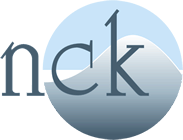L.B. Brakenhoff1*, H. de Looff1, J. Litjens1, C. van Gelder-Maas1, R.J.A. Wilmink1, Q.J. Lodder1,2
1Rijkswaterstaat; 2TU Delft
*corresponding author:
Introduction
Sea level rise affects coastal safety. Until 2050, current coastal management strategies as described in the Delta programme suffice, but uncertainties arise on longer time scales. On the one hand, it is unknown to what extent the melting of ice on Antarctica will accelerate sea level rise in the Netherlands. On the other hand, it is not yet clear up to when we can maintain our current coastal management strategies, and which options there are for long-term strategies, at least up to 5 m of sea level rise. Therefore, the research programme Sea Level Rise was set up. One of the main goals of this programme is to develop knowledge that can improve our decision-making on the long-term maintenance and development of the Dutch coast with respect to coastal (flood risk) management.
Methods
The research programme comprises five tracks. One of these tracks (track 2) contains a study of the effect of sea level rise on the current coastal management strategy, including stress tests of the current flood risk management strategies. This track considers the impact of different values of sea level rise (0.5, 1, 2, 3 and 5 m, Figure 1) for three themes: on the natural process of the sandy coastal system, on levees and artificial structures (flood risk management), and on fresh water systems (water supply). For each of these themes, in 2022 we will determine the physical impact of sea level rise on our current flood risk management strategies of the Dutch Delta programme. For example, for the sandy coast the sediment demand is determined for the various levels of sea level rise, followed by a study on how this affects the nourishment volumes. After this, in 2023-2024, we will explore what options are available for continuing the current strategy.
Results
Together with regional authorities, each theme has set up its own research agenda. For the themes of flood risk management and water supply, modelling has already started. The sandy coast theme will first consult various experts in the field, in order to determine the main research priorities. At the NCK days, we will present the preliminary outcomes and current research agenda. Our aim is to find synergy with NCK partners in how they are addressing similar issues in their work.

Figure 1: Sea level rise timelines (lines) and values (dots) as used in the Research programme Sea Level Rise
I. Surname1*, F.N. Another-Surname2 , Y. Next-Surname2
1 University Name, Country; 2 Organization Name, Country
* Corresponding author: mail.name@organization.org


